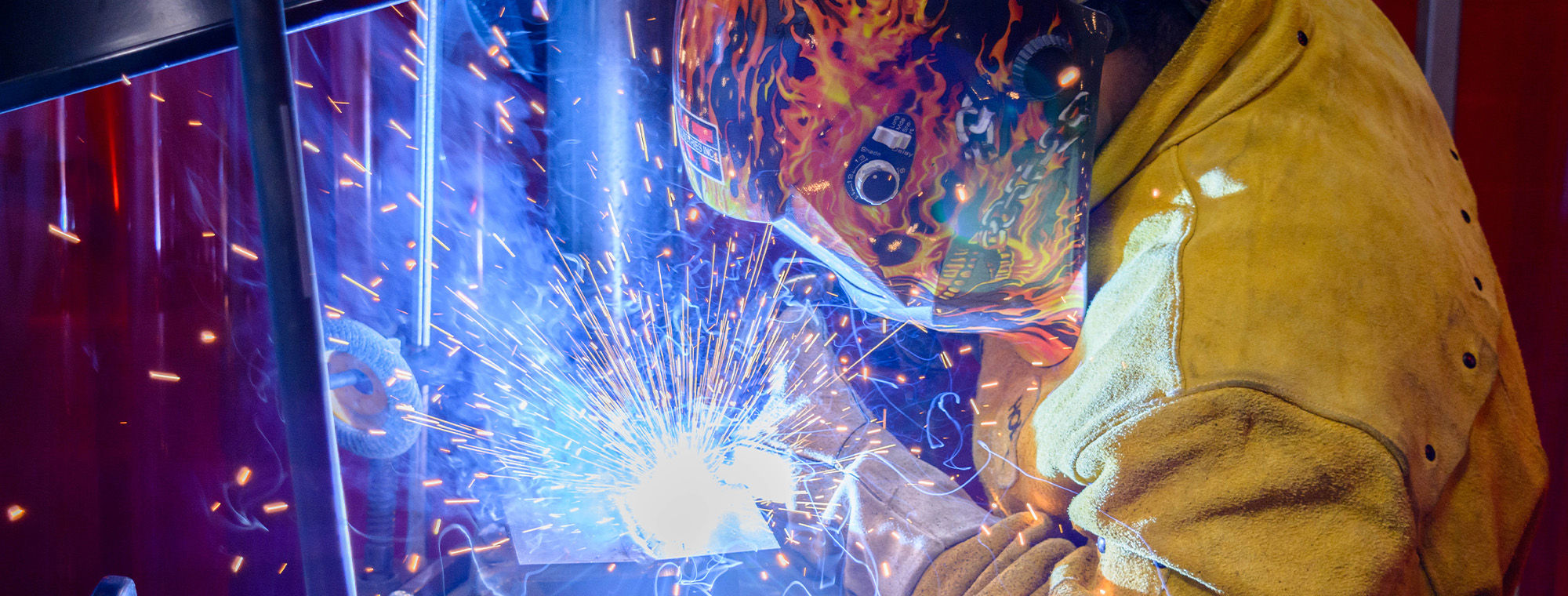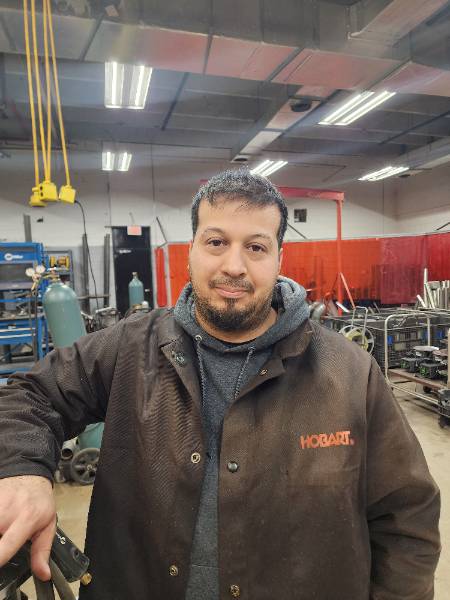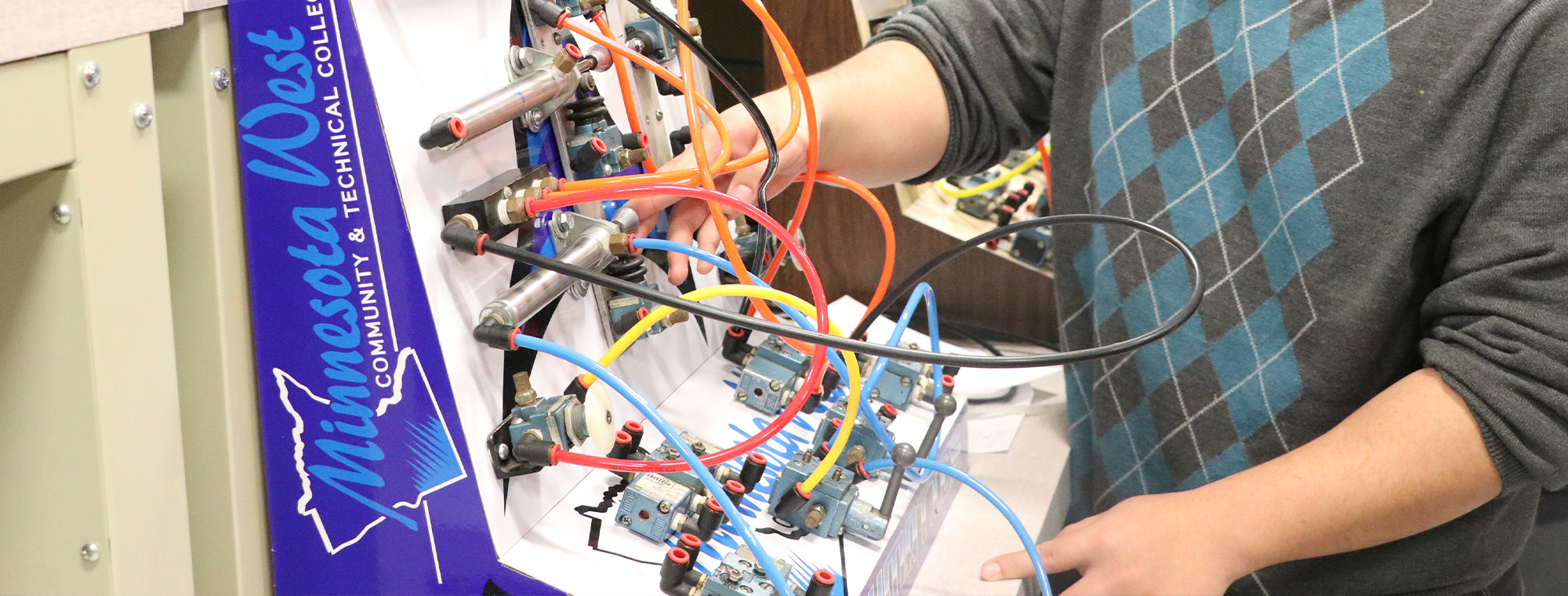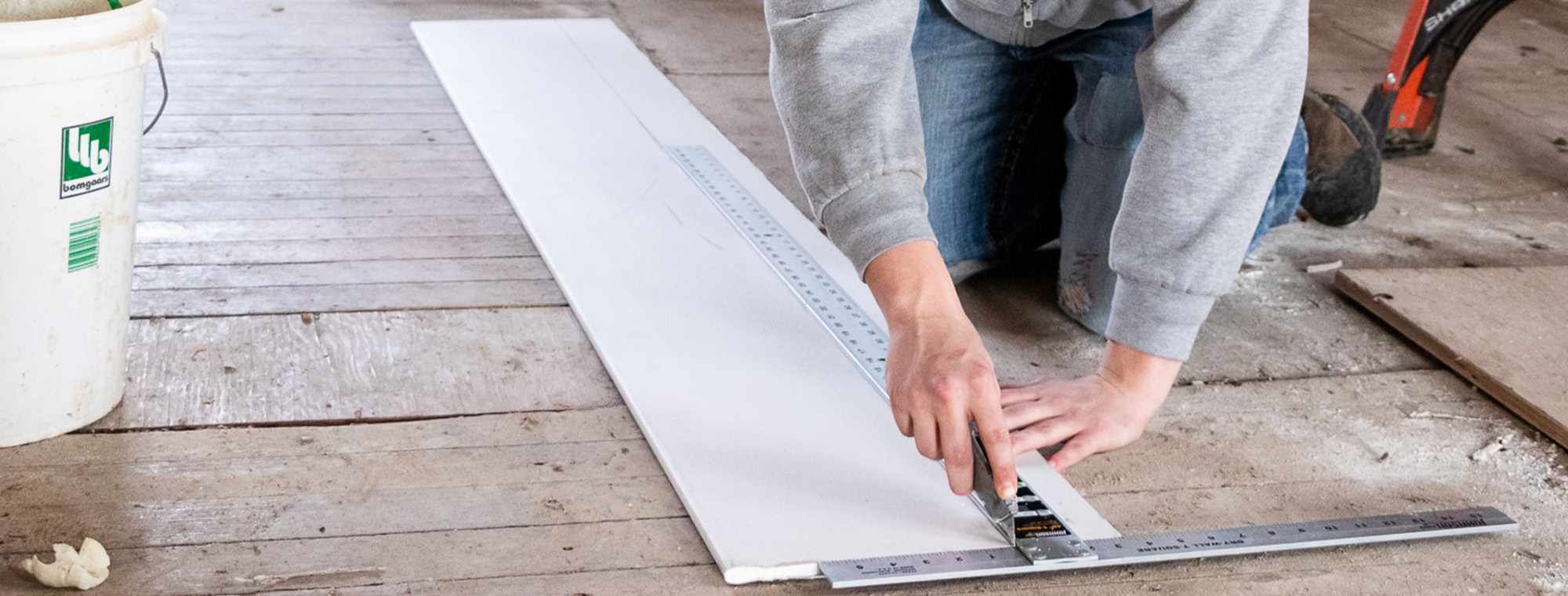Welding

Join the ever-growing career of welding! Welding is a high-demand field filled with opportunities. If you have a steady hand, a sharp eye, and a passion for metalwork, welding is a great choice for you. Start today and join the welding field in less than a year!
1 year program
Learn American Welding Society standards
High-demand career
This Program is Available at:
Choose your path

Welding, Diploma
Receive your welding certificate in one year by learning technical knowledge in welding. Gain skills for Shielded Metal Arc, Gas Metal Arc, Gas Tungsten Arc, Pipe Welding, Plasma, and Oxy-Fuel cutting processes. Understand welding symbols, read and interpret welding blueprints, and practice welding safety. Learn the industry standards — American Welding Society D1.1 Structural Code. Start a high-demand welding career after program completion!
Length
- 1 Year for Full-Time Students
- 32 Credits
Course List

Welding, Certificate
Receive your welding certificate in one semester by learning technical knowledge in welding. Learn Shield Metal Arc, Gas Metal Arc, Plasma, and Oxy-Fuel cutting processes. The program teaches the reading of welding symbols and blueprints, as well as welding safety protocols. Prepare for an entry-level welding position or further your career and get the welding diploma!
Length
- 1 Semester for Full Time Students
- 16 Credits
Course List

Welding GMAW, Certificate
Dip your feet into the field of welding with the Welding GMAW Certificate. With just 9 credits, you will learn hands-on welding skills for the Gas Metal Arc Welding process. Learn to recognize welding symbols and read and interpret welding blueprints. Prepare for an entry-level welding position or further your career and get the welding diploma!
Length
- 1 Semester for Full-Time Students
- 9 Credits
Career Opportunities
Construction welders use specialized tools to generate intense heat, melting metal at precise points, enabling the fusion of separate pieces into a cohesive structure.
A manufacturing welder joins metal pieces through welding or brazing, employing heavy machinery to melt and shape the material into desired forms. Integral to their role is the meticulous review of blueprints before cutting any plates.
Sheet metal workers specialize in fabricating, installing, and maintaining thin sheet metal products. Their tasks include welding thin sheet metals and similar materials, securing metal seams, constructing supportive frameworks, and fastening materials using bolts.
Welding inspectors oversee compliance with safety codes in construction projects involving welding. They meticulously examine welding work to ensure adherence to federal, local, and state regulations, and they also review work plans before construction begins.
A pipe welder is responsible for connecting and fixing pipes while constructing piping assemblies according to precise standards. Utilizing an array of tools, including specialized equipment, they perform their tasks. Their work environment can vary from indoor to outdoor settings, often in confined spaces and adverse weather conditions, depending on project requirements.




